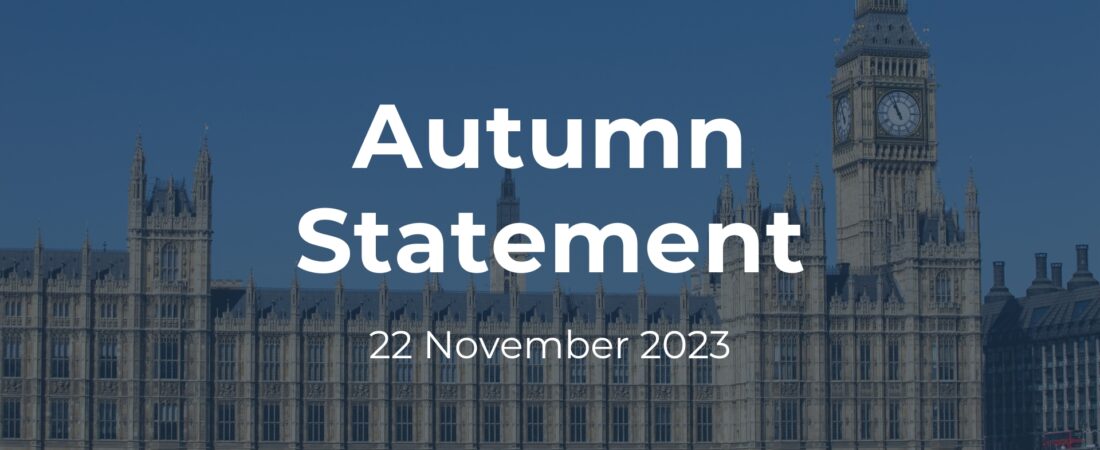Find out how the plans announced during the Autumn Statement 2023 could affect landlords, from tax cuts to support for tenants.
Chancellor Jeremy Hunt delivered this year’s Autumn Statement on November 22, addressing the pressing calls for changes to stamp duty and capital gains tax.
Despite introducing over a hundred measures to boost the economy, substantial support for landlords and the rental market was notably absent.
However, there are several important updates for you to be aware of, including an unexpected tax cut, increased support for tenants, and a firm commitment from the government to existing plans.
- National Insurance cut offers a boost for full-time landlords
- Increase in Local Housing Allowance could drive rents up
- Stamp duty surcharge and thresholds remain the same
- Capital gains tax-free allowance set for further drop
- No update on the Renters Reform Bill despite King’s Speech mention
- No changes to energy efficiency standards
- How can new housebuilding measures help landlords?
Get unbeatable coverage on Rightmove, Zoopla, and dozens more sites for just £49.
List Your Property TodayNational Insurance cut offers a boost for full-time landlords
The chancellor has introduced a tax plan designed to support businesses and workers, sparking speculation that additional personal tax reductions will follow in the spring leading up to the general election.
As part of this initiative, Class 2 National Insurance contributions for the self-employed have been eliminated. Starting April 2024, self-employed taxpayers will be relieved of the £3.45 per week compulsory charge.
The Treasury projects an annual savings of £192 for the average self-employed individual, recognising their significant contribution to the economy.
This tax adjustment especially benefits landlords whose primary income comes from renting out their properties, generating profits exceeding £6,275 annually.
Increase in Local Housing Allowance could drive rents up
Recognising the financial strain of rent on tenants with the lowest incomes, the Treasury is taking steps to raise the Local Housing Allowance (LHA). This move aims to extend LHA coverage to encompass the lowest 30% of rents nationwide.
The anticipated increase in LHA is expected to benefit around 1.6 million households, offering an average of £800 in additional support next year.
For landlords, this adjustment may bring about changes in rental market dynamics, especially in areas with lower rents. The increase of LHA could render renting more financially feasible for tenants in lower income brackets, potentially leading to increased demand and influencing rent levels, particularly in high-demand areas.
You might also be interested in…
- How to Serve a Section 21 Notice to Tenants
- How to Be a Live-In Landlord: Rules, Rights and Managing Lodgers
- How to Increase the Rent by Serving a Section 13 Notice
- Rent in Advance Rules Under the Renters’ Rights Bill Explained
- Understanding Leasehold Reforms in 2025
Stamp duty surcharge and thresholds remain the same
Stamp duty surcharge and thresholds remain unchanged as the government has opted to maintain the current rates until March 2025. Under these rates, property buyers pay no tax on the first £250,000 of their purchase.
However, landlords and buyers of second homes are still required to pay an additional 3% in stamp duty.
While this plan may dissuade some landlords from venturing into new property investments in the upcoming year, it provides a sense of stability for the time being.
Capital gains tax-free allowance set for further drop
Last year’s Autumn Statement revealed a significant cut to the capital gains tax-free allowance. In April 2023, the allowance decreased from £12,300 to £6,000, with another reduction slated for April 2024.
Despite landlords’ hopes for a change, the government has chosen to stick to the initial plan. This means the capital gains tax-free allowance will see a further reduction to £3,000 in April 2024.
Considering that some landlords are contemplating selling their property in the upcoming year, this decision implies that a larger chunk of their profits will be taxed if they sell.
No update on the Renters Reform Bill despite King’s Speech mention
Despite being highlighted in the King’s Speech as a government priority for the coming year, the Renters Reform Bill received no mention in the Autumn Statement.
In October 2023, the government confirmed that the end of Section 21 will be ‘aligned’ with ‘court improvements’, leaving it unclear when this main aspect of the bill will be introduced.
Currently, rental reforms are being debated and scrutinised in the House of Commons, and they’ll need to pass eight more stages before receiving royal assent and becoming law.
Let us take the stress off your shoulders – from contract signing to monthly rent collection.
Try Rent NowNo changes to energy efficiency standards
Following the prime minister’s decision to abandon the proposed changes to energy efficiency standards, the majority of landlords were left questioning whether a new deadline or scheme would be introduced.
However, there was little to no reference to energy efficiency in the Autumn Statement, indicating that the main schemes for landlords continue to be the Boiler Upgrade Scheme, and the Great British Insulation Scheme, among others.
The Statement’s housing updates mainly focused on new measures for housebuilding, aiming to increase the availability of new rental properties.
How can new housebuilding measures help landlords?
In response to the ongoing demand for rental properties surpassing available supply, a series of initiatives aimed at increasing the housing stock were revealed.
A commitment of over £100 million has been made to construct 40,000 homes under the umbrella of ‘high-quality nutrient mitigation schemes’.
Moreover, local authorities are set to receive £450 million in funding to construct 2,400 new homes, while an investment of £32 million is set to tackle planning backlogs in Cambridge, London, and Leeds.
For landlords and investors looking to convert their properties, the chancellor confirmed a consultation on a new permitted development right, enabling any home to be turned into two flats, so long as ‘the exterior remains unaffected’.




Think you’re a bit out of date on the full time landlords/class 2 NI section. Unless they are running a trade (eg a B&B) landlords have had no compulsory liability to class 2 NI since 2015 … NIM74250 - Class 2 National Insurance contributions: special cases: property and investment income - HMRC internal manual - GOV.UK.